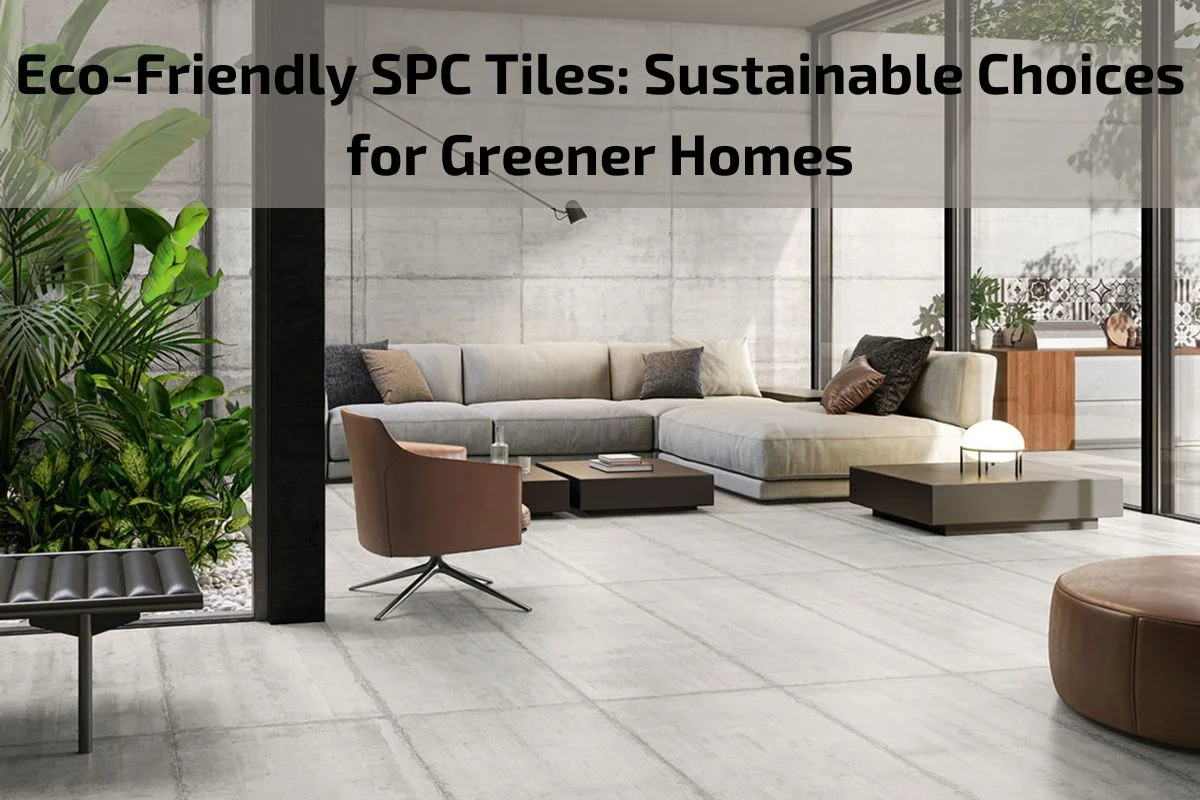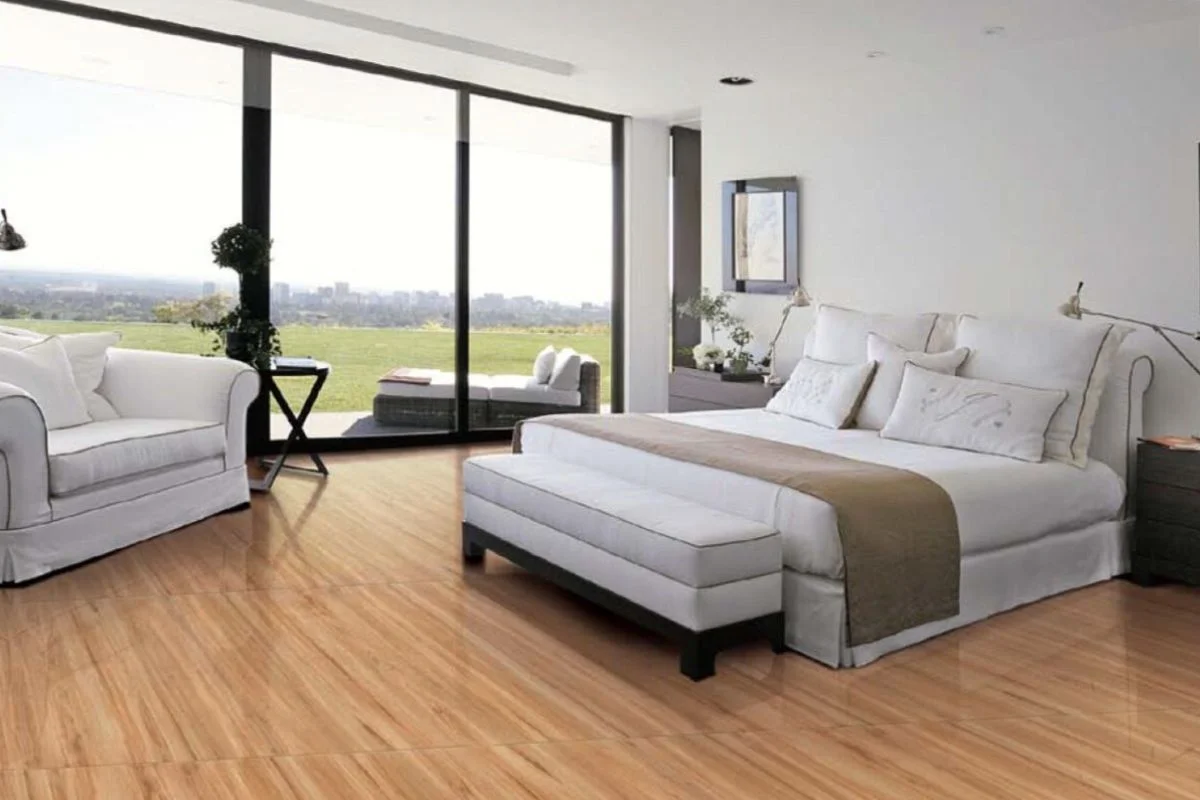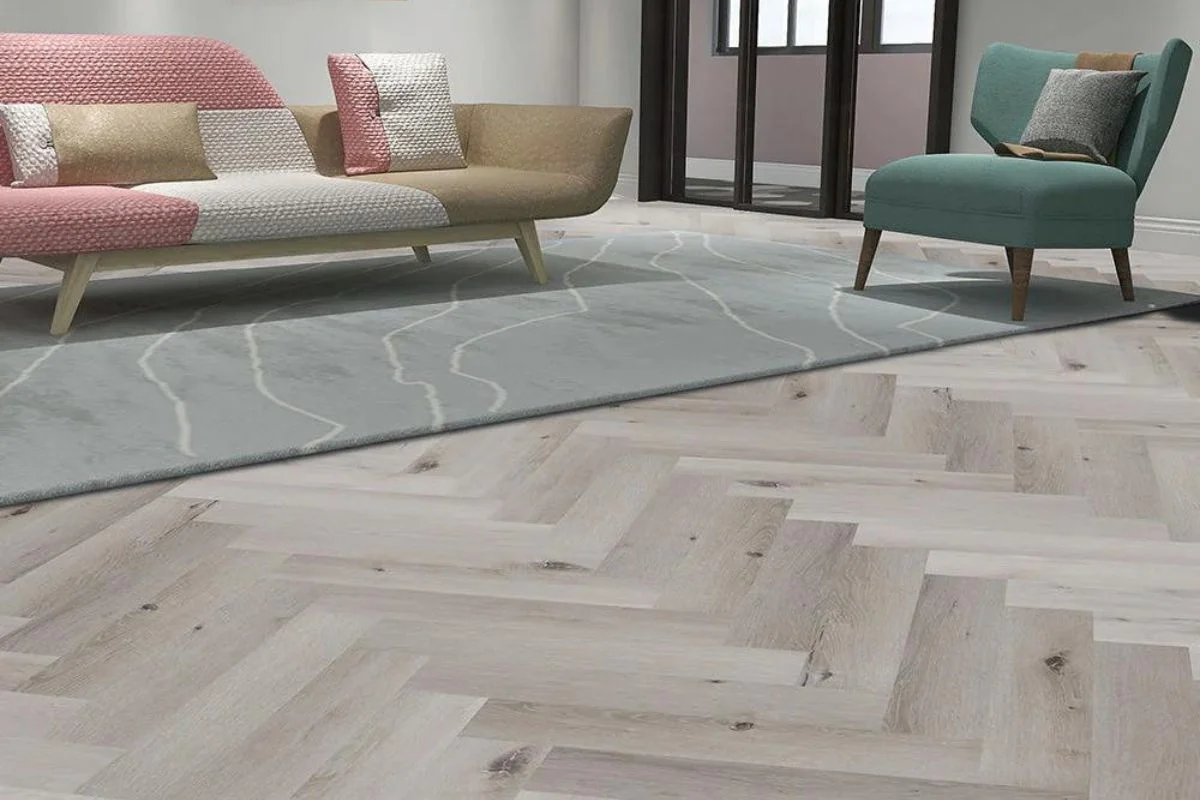Eco-Friendly SPC Tiles: Sustainable Choices for Greener Homes
In today’s world, sustainability and eco-friendliness are increasingly becoming top priorities for homeowners and designers alike. As awareness of environmental issues grows, so does the demand for building materials that minimize environmental impact without compromising on quality or style. SPC (Stone Plastic Composite) tiles emerge as a sustainable flooring solution that meets these demands, offering a greener alternative to traditional ceramic or stone tiles.
In this exploration of eco-friendly SPC tiles, we delve into the sustainable features and benefits that make them an ideal choice for greener homes. From their composition to their manufacturing process, SPC tiles are designed with the environment in mind, offering a range of eco-friendly advantages that contribute to a more sustainable living space.
Importance of SPC Tiles in interior design
In the ever-evolving landscape of interior design, the flooring choices we make play a pivotal role in shaping the aesthetic appeal and functionality of a space. Stone Plastic Composite (SPC) tiles have emerged as a revolutionary force in the world of interior design, providing a myriad of benefits that make them increasingly indispensable. Let’s explore the significance of SPC tiles in elevating interior design to new heights.
Versatility in Design:
- SPC tiles offer an unparalleled versatility in design, allowing homeowners and designers to unleash their creativity. With a wide array of colors, patterns, and textures, SPC tiles can effortlessly mimic the appearance of natural materials like wood, stone, and ceramic. This versatility makes them suitable for a diverse range of interior styles, from contemporary to classic, enabling designers to achieve the desired look with precision.
Aesthetic Appeal:
- One of the standout features of SPC tiles is their aesthetic appeal. The meticulous manufacturing process allows for realistic replication of natural textures and patterns, providing a visually stunning flooring option. Whether it’s the warmth of hardwood, the elegance of marble, or the industrial charm of concrete, SPC tiles offer an aesthetic richness that enhances the overall ambiance of any space.
Durability and Resilience:
- SPC tiles are engineered for durability and resilience, making them an ideal choice for high-traffic areas in both residential and commercial settings. The composition of Stone Plastic Composite includes layers that contribute to the tile’s strength, ensuring resistance to scratches, dents, and other forms of wear and tear. This durability translates to a longer lifespan, reducing the need for frequent replacements and maintenance.
Waterproof Properties:
- Unlike some traditional flooring options, SPC tiles boast exceptional waterproof properties. This makes them particularly suitable for areas prone to moisture, such as kitchens, bathrooms, and basements. The waterproof nature of SPC tiles not only protects against water damage but also inhibits the growth of mould and mildew, promoting a healthier indoor environment.
Easy Installation:
- SPC tiles feature user-friendly installation methods, often utilising click-and-lock systems. This makes the installation process efficient and accessible, even for those who prefer to take on do-it-yourself projects. The ease of installation not only saves time but also contributes to cost-effectiveness.
Sustainable Flooring Choice:
- Sustainability is an increasingly important consideration in interior design, and SPC tiles align with eco-friendly practices. The materials used in SPC tiles are often recyclable, and the manufacturing processes are designed to be energy-efficient. Choosing SPC tiles contributes to a more sustainable approach to flooring without compromising on style or performance.
Benefits of SPC Tiles
Stone Plastic Composite (SPC) tiles have become a popular choice for flooring in both residential and commercial spaces, and for good reason. The numerous benefits they offer make them a compelling option for those seeking a combination of style, durability, and practicality. Here are the key advantages of SPC tiles:
Durability and Longevity:
- SPC tiles are engineered to be exceptionally durable, standing up to the rigors of daily life with ease. Their composition, including a stone plastic core, provides a robust foundation that resists scratches, dents, and impacts. This durability translates into a longer lifespan for the flooring, reducing the need for frequent replacements.
Waterproof Properties:
- One of the standout features of SPC tiles is their waterproof nature. Unlike traditional flooring options like hardwood or laminate, SPC tiles are impervious to water, making them ideal for moisture-prone areas such as kitchens, bathrooms, and basements. This waterproof characteristic not only protects the flooring but also prevents issues like warping, swelling, or mould growth.
Versatile Design Options:
- SPC tiles come in a wide variety of designs, colours, and patterns. Whether you prefer the look of natural wood, stone, or contemporary patterns, SPC tiles offer a versatile range of aesthetic options. This versatility allows homeowners and designers to achieve the desired look and feel for their spaces, enhancing the overall interior design.
Ease of Installation:
- SPC tiles often feature user-friendly installation systems, such as click-and-lock mechanisms. This makes the installation process efficient and straightforward, even for those without extensive experience in flooring installation. The ease of installation can save both time and money, making SPC tiles a practical choice for DIY projects.
Comfort and Quietness:
- SPC tiles contribute to a comfortable and quiet living environment. The rigid core of SPC tiles provides a stable and supportive surface, offering a comfortable underfoot feel. Additionally, the dense composition of the tiles helps reduce sound transmission, making them an excellent choice for areas where noise reduction is desired.
Low Maintenance:
- SPC tiles are relatively low-maintenance compared to some other flooring options. Their smooth and non-porous surface makes cleaning a breeze, requiring only regular sweeping and occasional damp mopping to keep them looking pristine. This simplicity in maintenance is especially appealing for busy households and commercial spaces.
Temperature Resistance:
- SPC tiles are designed to withstand temperature variations without compromising their structural integrity. This resistance to temperature changes makes them suitable for installation in areas with fluctuating temperatures, ensuring the flooring remains stable and reliable over time.
Eco-Friendly Composition:
- SPC tiles often boast an eco-friendly composition. The materials used in their construction are frequently recyclable, and the manufacturing processes are designed to be energy-efficient. Choosing SPC tiles aligns with a more sustainable approach to flooring, making them a responsible choice for environmentally conscious consumers.
Uses of SPC tiles
Stone Plastic Composite (SPC) tiles have gained popularity due to their versatility and suitability for various applications. Their robust construction and diverse features make them a practical choice for both residential and commercial settings. Here are the key uses of SPC tiles:
Residential Flooring:
- SPC tiles are widely used as flooring in residential spaces. Whether in living rooms, bedrooms, kitchens, or bathrooms, their durability, waterproof properties, and aesthetic versatility make them a popular choice for homeowners seeking a stylish and low-maintenance flooring option.
Commercial Spaces:
- SPC tiles are ideal for commercial settings with high foot traffic. Their durability ensures they can withstand the demands of busy areas such as retail spaces, offices, and restaurants. The ease of maintenance and the ability to mimic various materials contribute to their popularity in commercial interior design.
Kitchens:
- SPC tiles are particularly well-suited for kitchen flooring. Their waterproof nature protects against spills and moisture, making them an excellent choice for this high-traffic area. The variety of designs allows homeowners to achieve the desired aesthetic, from modern to traditional kitchen styles.
Bathrooms:
- Given their resistance to water and humidity, SPC tiles are a preferred choice for bathroom flooring. They provide a durable and stylish solution that can withstand the challenges posed by frequent exposure to water and changes in temperature.
Basements:
- SPC tiles are a practical option for basement flooring, where moisture resistance is crucial. Their waterproof properties prevent issues such as mould growth and water damage, making them a reliable choice for transforming basements into functional and comfortable living spaces.
Commercial Kitchens and Restaurants:
- In commercial kitchens and restaurants, where spills and high foot traffic are common, SPC tiles shine. Their durability, easy maintenance, and resistance to water make them an excellent flooring choice for these demanding environments.
Retail Spaces:
- SPC tiles are often used in retail settings due to their aesthetic appeal and ability to withstand heavy foot traffic. The versatility in design allows retailers to create a visually appealing and on-brand atmosphere for their stores.
Offices:
- Offices benefit from the durability and low-maintenance characteristics of SPC tiles. Their ability to endure the constant movement of office furniture and foot traffic, coupled with the ease of cleaning, makes them a practical flooring solution for office spaces.
Educational Institutions:
- SPC tiles are suitable for educational facilities such as schools and universities. Their durability ensures they can withstand the wear and tear associated with large student populations, and their easy maintenance is conducive to maintaining a clean and hygienic learning environment.
Hotels and Hospitality Spaces:
- SPC tiles find applications in hotels and hospitality settings where a combination of aesthetics and functionality is essential. Their ability to mimic luxurious materials coupled with their durability makes them a preferred choice for these spaces.
Maintenance Tips of SPC Tiles
Maintaining the pristine appearance and longevity of Stone Plastic Composite (SPC) tiles is a straightforward process that involves some regular care and attention. Here are essential maintenance tips to keep your SPC tiles looking their best:
Regular Sweeping or Vacuuming:
Keep your SPC tile floors free of dirt and debris by sweeping or vacuuming regularly. This prevents abrasive particles from scratching the surface of the tiles.
Damp Mopping:
Periodically mop the SPC tiles with a damp mop to remove any residue or stains. Use a mild floor cleaner or a solution of water and a pH-neutral cleaner. Avoid using harsh chemicals, as they can damage the protective wear layer of the tiles.
Prompt Spill Cleanup:
Address spills and stains promptly. SPC tiles are waterproof, but allowing spills to sit for an extended period can lead to discoloration or sticky residues. Wipe up spills with a clean, damp cloth as soon as they occur.
Avoid Abrasive Cleaners:
Refrain from using abrasive cleaners or scouring pads, as they can scratch the surface of the tiles. Stick to soft cloths, mops, and non-abrasive cleaning tools to maintain the integrity of the SPC tile’s wear layer.
Use Furniture Pads:
Place felt or soft pads under the legs of furniture to prevent scratches and dents when moving or rearranging items. This simple precaution helps preserve the surface of your SPC tiles.
Protective Mats or Rugs:
Place mats or rugs at entrances and high-traffic areas to capture dirt and moisture. This minimises the amount of debris that reaches the SPC tiles, reducing the risk of scratches and abrasions.
Avoid Sharp Objects:
Be cautious with sharp or heavy objects on SPC tile surfaces. While SPC tiles are highly durable, sharp objects can still cause damage. Take care when moving heavy furniture or appliances to prevent potential chips or scratches.
Regular Inspection:
Periodically inspect the condition of your SPC tiles. Check for any signs of damage, loose tiles, or wear in high-traffic areas. Addressing issues promptly can prevent them from worsening and extend the lifespan of your flooring.
Use Area Rugs in Sunlit Areas:
In areas with prolonged exposure to direct sunlight, consider using area rugs or curtains to minimise the impact of UV rays. This precaution helps prevent fading or discoloration of the SPC tiles over time.
Avoid Excessive Moisture during Cleaning:
While SPC tiles are waterproof, avoid excessive water during cleaning. Use a damp mop rather than a soaking wet one, as excess water can seep into seams and edges, causing potential issues over time.
Conclusion
In conclusion, Stone Plastic Composite (SPC) tiles stand as a testament to the evolution of flooring solutions, providing a versatile and resilient option for both residential and commercial spaces. The myriad benefits of SPC tiles, from their durability and waterproof properties to their aesthetic versatility, make them a compelling choice in the world of interior design.





0 comments